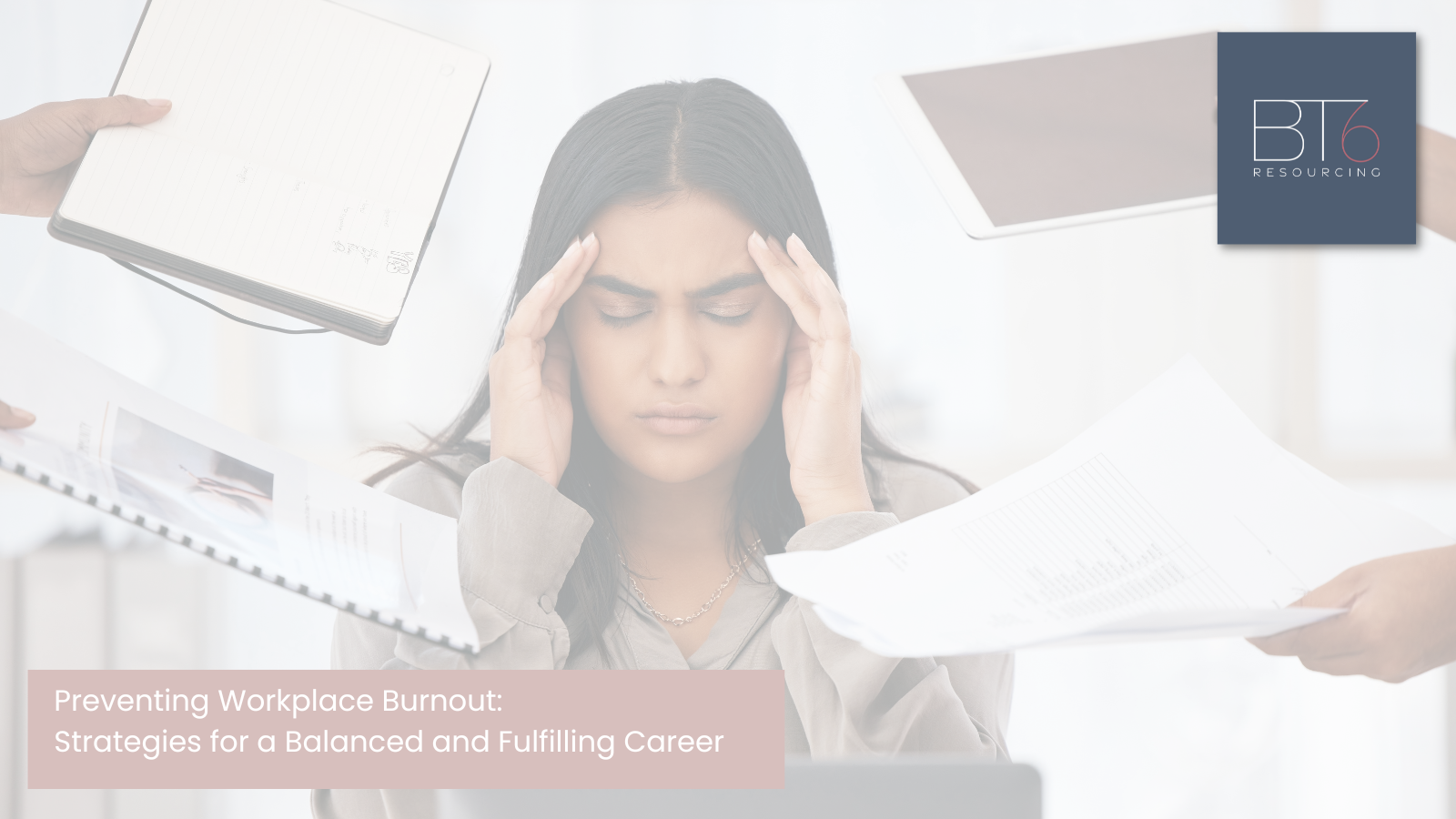Workplace burnout is a growing concern in today's fast-paced and demanding professional world. Prolonged stress, heavy workloads, and a lack of work-life balance can take a toll on employees, leading to physical and emotional exhaustion. Preventing workplace burnout is essential for maintaining a healthy and productive workforce.
On the BT6 blog today, we will explore effective strategies to prevent workplace burnout and promote a balanced and fulfilling career.
Set Realistic Goals and Prioritise Tasks
One of the primary contributors to burnout is an overwhelming workload and a constant feeling of never catching up. Set realistic and achievable goals, and break them down into smaller tasks. Prioritise these tasks based on their urgency and importance. By focusing on manageable objectives, you can reduce the stress associated with trying to do everything at once.
Establish Boundaries Between Work and Personal Life
Maintain a clear boundary between work and personal life to avoid burnout. Set specific working hours and try to stick to them. Avoid checking work emails or taking work calls during your personal time. This separation allows you to recharge and engage in activities that promote well-being outside of work.
Encourage Open Communication
Create an environment where employees feel comfortable expressing their concerns and seeking help. Encourage open communication between team members and managers. Regular check-ins can help identify potential burnout signs early on, allowing for timely intervention and support.
Foster a Positive Work Culture
A positive work culture can significantly impact employee well-being and job satisfaction. Recognise and appreciate employees' efforts and accomplishments. Celebrate milestones and create a sense of camaraderie among team members. Promote a healthy work-life balance and offer flexibility when possible.
Provide Adequate Resources and Support
Ensure that employees have the necessary resources and support to perform their tasks effectively. Lack of resources or constant pressure to perform without adequate support can lead to burnout. Regularly assess workload distribution and provide additional training or assistance if needed.
Encourage Regular Breaks and Holidays
Encourage employees to take regular breaks throughout the day to recharge. Short breaks can enhance focus and productivity. Additionally, encourage employees to take their allocated holiday time. Time away from work allows individuals to rest, rejuvenate, and return with renewed energy and creativity.
Offer Wellness Programs
Implement wellness programs that focus on physical and mental well-being. These programs may include yoga or meditation sessions, access to counselling services, or workshops on stress management and resilience. A focus on wellness empowers employees to cope with stress and maintain a healthier work-life balance.
Promote Skill Development and Growth
Employees who feel stagnant or undervalued in their roles are more susceptible to burnout. Offer opportunities for skill development and career growth, such as workshops, training programs, or mentoring initiatives. Employees who see a clear path for growth are more likely to feel motivated and engaged.
Preventing workplace burnout is a shared responsibility between employers and employees. By fostering a positive work culture, encouraging open communication, providing resources and support, and promoting work-life balance, organisations can create a healthy and productive environment for their employees. Equally important, individuals must take charge of their well-being by setting realistic goals, establishing boundaries, and seeking help when needed. Together, we can create workplaces that prioritise employee well-being, leading to happier, healthier, and more fulfilled careers.
Read more career tips and advice, over on the BT6 blog!

